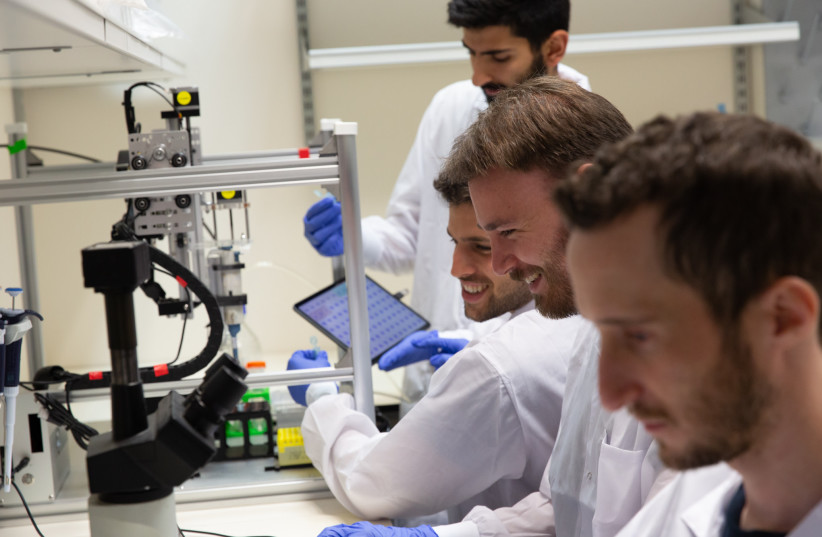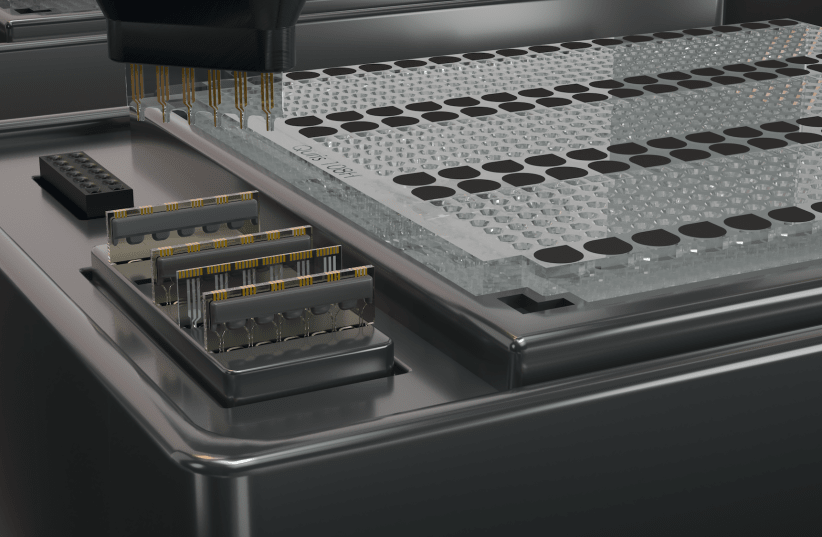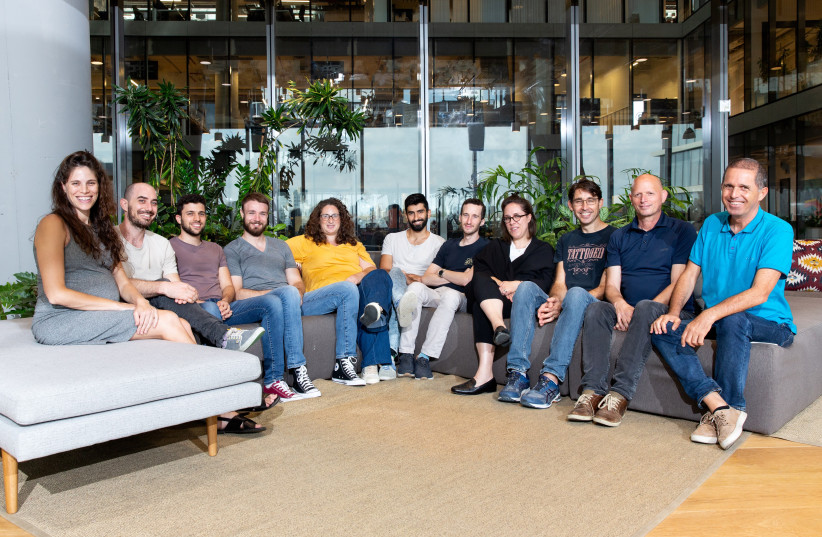Robert Langer, the co-founder of Moderna and a lauded MIT professor, said, “We are at the tipping point of the modernization of drug discovery” and that the “Quris platform could be a significant value to pharma companies and the health of society at large.”
Langer is a member of the scientific advisory board of Quris, which officially launched this week and announced $9 million in seed funding to support its efforts.
Nobel laureate Aaron Ciechanover is the chairman of the company’s scientific advisory board.

Quris, based in Israel and Boston, is an artificial intelligence (AI) company operating in the pharmaceutical space. Its team has developed an AI platform to predict which drug candidates will work most safely and effectively in humans.
It does it through AI-powered “patients-on-a-chip,” explained CEO Isaac Bentwich, a chip-on-chip platform that uses a combination of low-cost, disposable “miniaturized biology” chips and novel real-time nano-sensor and nano-circulation chips to continuously train the Quris AI engine and drug candidate safety and efficacy predictor.
The platform is being trained on known safe and toxic drugs. The company is working in partnership with the New York Stem Cell Foundation Research Institute.
The goal is to avoid the tremendous risks and costs of failed clinical trials and reduce the reliance on ineffective animal testing.
“Intensely competitive and wildly expensive, AI-driven drug discovery has become the leading frontier for pharma innovation. But while AI applications in pharma have surged, a core piece needed to solve the drug discovery puzzle has been missing, and most novel drugs still fail clinical trials, costing pharma companies more than $30 billion annually,” Bentwich said.
“Our drug discovery process is broken, and technology darlings across biotech, artificial intelligence, machine learning and big data have not been able to overcome the colossal clinical trial failure rate,” added Dr. Kobi Richter, founder and chief technology officer of Medinol.
The way that pharma works today is as follows: Scientists go to work in the lab to find potential drug candidates or targets, which costs a few million dollars and takes a lot of years. Once they think they are onto something, they move forward to animal studies (usually on mice) and then spend several million more dollars to test the theories there.
Once mice experiments have been passed, the development moves to clinical studies that cost hundreds of millions of dollars.
And, according to Bentwich, 89% of clinical studies fail, despite having successful mice experiments.
“We are not mice, so what works in animal-based trials is not a proper indicator of what will work for people,” Ciechanover explained.
“Using a breakthrough way to test drug candidates on miniaturized patients on chips, Quris can demonstrate their safety and efficacy, or lack thereof, through preliminary chip-based clinical trials,” he added. “This has never been done before, and Quris is charting the path.”
It is already starting to work, Bentwich said.
The company was originally focused on rare genetic diseases that cannot be modeled in animals. As part of its announcement earlier this week, Quris said that it was prepping the first drug developed on the platform for clinical trials in 2022: a treatment for Fragile X syndrome.
“This is really validation of the engine and its ability to create many dozens of these drugs,” Bentwich said.
Another AI-driven pharma lab that also took a leap this week is AION Labs, whose similar mission is to create and adopt new AI technologies that could transform the process of drug discovery and development.
AION announced the opening of its first global call for applications to form a start-up in its Rehovot lab to develop a next-generation general computational platform for the design of high-affinity and biophysically well-behaved antibody binders.
The call is specifically for computational biologists and biomedical scientists who are working at academic or industry research labs. The winning candidate will receive funding from the Israel Innovation Authority and a wealth of data for model training and support from AION’s partners – AstraZeneca, Merck, Pfizer and Teva.
“AION Labs is proud and excited to be launching our first call for application,” said its CEO Mati Gill. “We look forward to providing the chosen start-up with our strong resources and mentorship as we work together to develop a cutting-edge solution to overcome the pharmaceutical challenge of selecting drug candidates from antibody sequences. This is just the beginning.”

